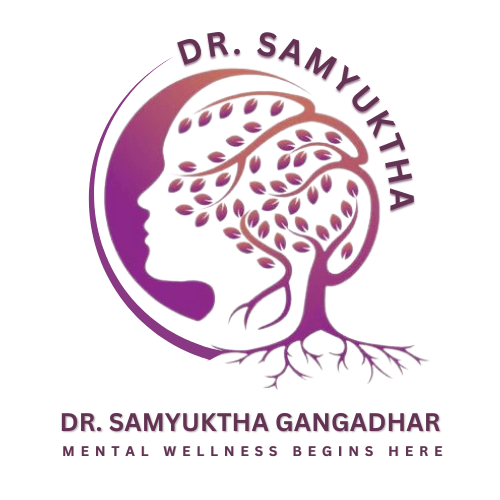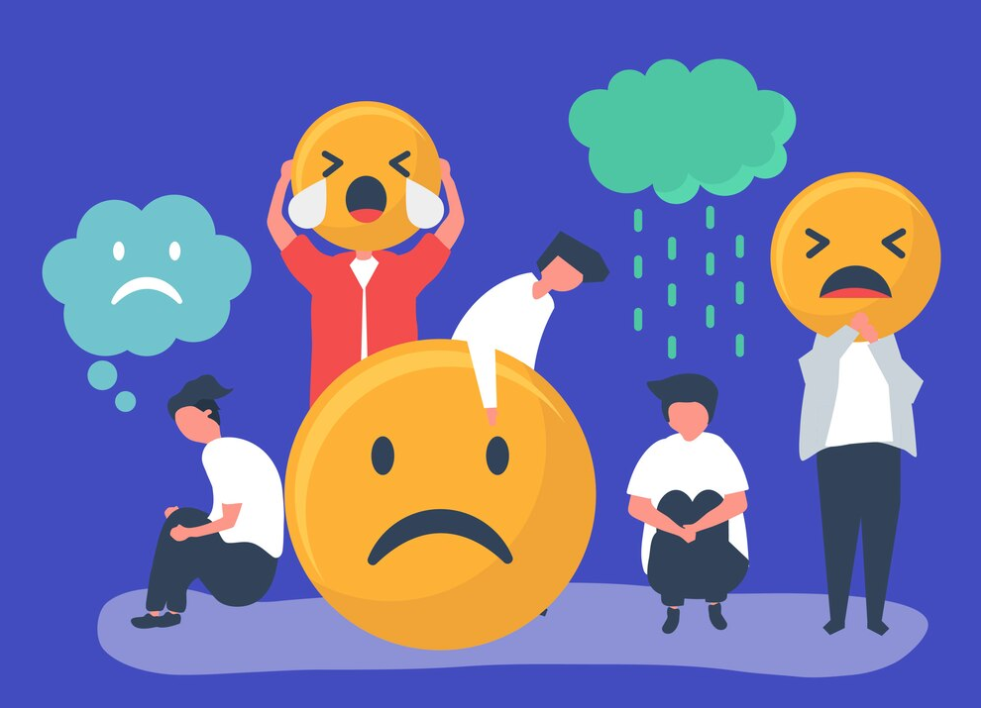Introduction: Understanding Mood Swings vs. Depression
Mental health is a vital component of overall well-being, but it is frequently misunderstood. Two common mental health issues are mood swings and depression. While they may seem similar, it is essential to differentiate between the two for proper treatment and support. Mood swings are temporary emotional changes that can occur due to various factors, while depression is a persistent and severe mental health condition that affects daily life. Recognizing the difference is crucial for effective intervention, which is why finding the best psychiatrist for depression is so important. The best psychiatrist for depression can provide accurate diagnoses and tailor treatment plans to meet individual needs, ensuring comprehensive care and support.
Common Symptoms of Mood Swings

Mood swings refer to rapid changes in mood, where an individual might feel happy one moment and sad the next. Common examples include:
- Feeling irritable or euphoric without a clear reason.
- Rapid shifts from excitement to sadness.
- Increased sensitivity to small issues.
Factors that can trigger mood swings include hormonal changes, stress, lack of sleep, and certain medications. It’s important to recognize that while mood swings are temporary, they can still impact one’s daily life and relationships.
Key Indicators of Depression
Depression is a serious mental health condition characterized by persistent and severe symptoms that impact daily life. Recognizing these key indicators can help in identifying when someone might need professional help:
- Persistent Sadness or Low Mood: Feeling sad, hopeless, or empty most of the time. This consistent emotional state lasts for weeks, months, or longer.
- Loss of Interest in Activities: Losing pleasure in hobbies, social activities, or spending time with loved ones. This symptom, known as anhedonia, often leads to social withdrawal.
- Physical Symptoms: Changes in appetite and weight, disrupted sleep patterns (insomnia or hypersomnia), fatigue, and unexplained physical aches and pains.
If these symptoms are present and persistent, it is crucial to consult a mental health professional for an accurate diagnosis and effective treatment plan.
Comparing Mood Swings and Depression
While both mood swings and depression involve changes in mood, there are significant differences that help in distinguishing between the two:
- Duration and Intensity:
- Mood Swings: These are typically short-lived and can change rapidly within minutes, hours, or days. They are usually responses to specific triggers such as stress, hormonal changes, or environmental factors.
- Depression: This is a more persistent condition. The feelings of sadness or hopelessness in depression last for weeks, months, or even years. The intensity of depression is much deeper, often making it challenging for individuals to carry out daily activities.
- Impact on Daily Functioning:
- Mood Swings: While mood swings can disrupt daily life, the impact is generally temporary. A person may feel very happy or sad for a brief period, but these feelings typically pass, allowing them to return to their regular routine.
- Depression: Depression has a profound and ongoing impact on a person’s ability to function. It affects their capacity to work, study, eat, sleep, and enjoy life. Even basic tasks can feel overwhelming and exhausting.
- Relationships:
- Mood Swings: Although mood swings can affect relationships by causing occasional misunderstandings or conflicts, the transient nature of mood swings means that any issues they cause are often temporary.
- Depression: The prolonged and intense nature of depression can put a significant strain on relationships. Persistent feelings of sadness, irritability, or disinterest can lead to misunderstandings, frustration, and a sense of helplessness among loved ones, often resulting in more severe and long-term relationship difficulties.
When to Seek Help
Recognizing when to seek professional help is essential:
- Red flags: If mood changes are severe, persistent, and impact daily functioning, it’s time to consult a professional.
- Severity and persistence: Symptoms that last for more than two weeks and interfere with daily life warrant professional evaluation.
Role of a Psychiatrist in Diagnosis and Treatment
A psychiatrist like Dr. Samyuktha Gangadhar plays a crucial role in diagnosing and treating mood swings and depression:
- Differentiation: Psychiatrists distinguish between mood swings and depression through comprehensive evaluations of symptoms, patient history, and overall mental health. Mood swings are transient and often triggered by specific events, whereas depression involves prolonged periods of sadness and lack of interest.
- Diagnostic Tools:
- Interviews: Detailed one-on-one conversations to understand the patient’s thoughts, feelings, and behaviors.
- Questionnaires: Standardized tools like the Hamilton Depression Rating Scale (HDRS) and Beck Depression Inventory (BDI) to quantify symptom severity.
- Medical History Analysis: Reviewing the patient’s medical and family history to identify any underlying conditions or genetic predispositions.
Treatment Options Provided by the Best Psychiatrist for Depression
Dr. Samyuktha Gangadhar offers effective treatment options for depression:
- Therapeutic Approaches
- Cognitive-Behavioral Therapy (CBT): Helps patients identify and change negative thought patterns, promoting healthier thinking habits and emotional regulation.
- Medication Management
- Antidepressants: Prescribes medications like SSRIs and SNRIs to balance brain chemicals and alleviate symptoms.
- Additional Medications: May prescribe other medications for specific symptoms or co-existing conditions like anxiety.
- Personalized Treatment Plans
- Individualized Care: Develops tailored treatment plans based on each patient’s unique needs and circumstances.
- Ongoing Adjustment: Regularly reviews and adjusts treatment plans to ensure optimal outcomes.
Dr. Gangadhar’s comprehensive approach addresses both psychological and physiological aspects of depression, aiming for long-term recovery and improved quality of life.
Tips for Supporting a Loved One Experiencing Mood Swings or Depression

Supporting a loved one through mood swings or depression requires empathy and understanding:
- Approach with Empathy
- Talk with Concern: Speak gently and without judgment, acknowledging their feelings.
- Acknowledge Their Feelings: Let them know their emotions are valid and that you’re there to listen.
- Encourage Professional Help
- Suggest Seeking Help: Gently recommend seeing a psychiatrist and explain how it could help.
- Offer Assistance: Help find resources or make appointments to support their journey toward getting professional help.
Conclusion:
Understanding the difference between mood swings and depression is crucial for seeking the right help. Dr. Samyuktha Gangadhar, the best psychiatrist for depression in Kolkata, provides comprehensive and compassionate care to those in need. If you or a loved one is struggling with mood changes or depression, don’t hesitate to seek professional help.
For more information or to schedule a consultation, visit Pushpa Mindcare.
FAQs
What kind of doctor is best for depression?
A psychiatrist specializing in mental health is best for diagnosing and treating depression. Dr. Samyuktha, with her expertise in psychiatry, offers compassionate care and effective treatments tailored to each patient’s needs.
Who is the good doctor to heal depression?
Dr. Samyuktha is renowned for her ability to heal depression through a combination of therapy and medication management. Her personalized approach ensures comprehensive care that addresses the root causes of depression for lasting recovery.
Who is best to diagnose depression?
Dr. Samyuktha is highly skilled in diagnosing depression, utilizing advanced diagnostic tools and extensive clinical experience. Her accurate assessments enable precise treatment planning, fostering positive outcomes and improved mental well-being.
How can family and friends support someone experiencing mood swings or depression?
Offer empathy and understanding, encourage them to seek professional help, and assist with finding resources or making appointments. Showing support and being there for them can make a significant difference in their recovery journey.

